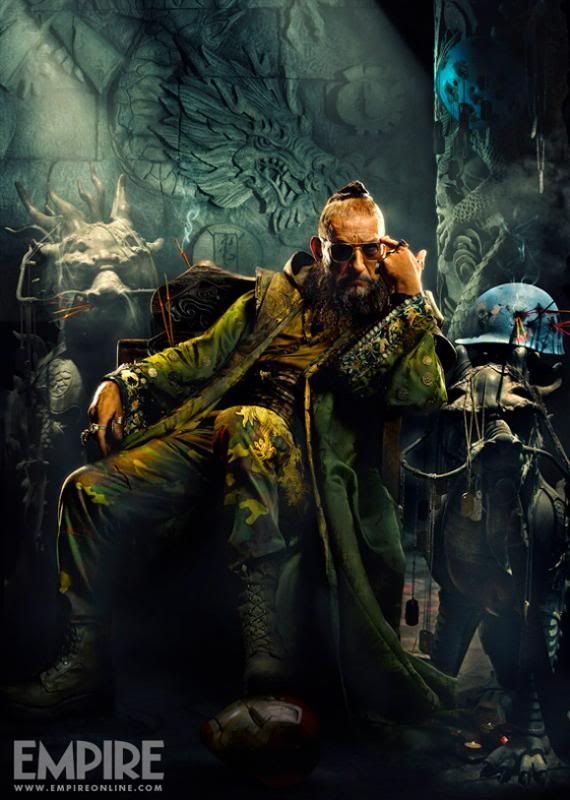
It should go without saying that the following contains SERIOUS SPOILERS for Iron Man 3. Fairly be ye warned. I’ll put it under the appropriate tags anyway, but I thought I’d remind you.
I’ll also remind you that I’m something of a Johnny-come-lately when it comes to my status as a fan of Iron Man, which may color my perceptions somewhat. Still with me? Then read on.
In the lead-up to Iron Man 3, it was revealed that Sir Ben Kingsley would be billed as The Mandarin, who is perhaps Iron Man’s most iconic foe. A holdover from the days of Cold War paranoia of everything communist, the Mandarin was the personification of Western fears of Chinese aggression – cunning, ruthless, steeped in Chinese iconography, and possessing powers of an alien nature. Detractors of the character have pointed out that, for the most part, the Mandarin’s something of a racist caricature, but with the casting of Kingsley, these detractors were silenced under the torrent of fanboy excitement at this classic character brought to life in a modern telling of Tony Stark’s ongoing story.
And then they saw the movie…
[spoiler]
…and the Mandarin they were promised turns out to be a red herring.
Aldrich Killian, Guy Pearce’s mad genius Extremis creator, used the Mandarin as a proxy face for the “bombings” caused by his experimental soldiers going haywire. He created the character of the Mandarin as an amalgamation of the 21st century fears of terrorism and anarchy, found a washed-up stage actor to play him, and began a media blitz to deflect any possible attention that might come his way. It is, upon reflection, an ingenious plan.
It is also perhaps the most divisive thing to be done in a comic book movie to date.
Comic book fans can be some of the most devoted people on the planet. The word “fan” after all derives from “fanatic”, and if any group could be described as fanatical in their devotion to a fictional property, it’s the devotees of comic book lore. Shane Black yanks the rug out from under them, and some of them are very upset about it. There are no alien rings of power, no grand maniacal scheme worthy of Ming the Merciless, no throwdown mano-a-mano between Stark and this iteration of the Mandarin; there’s the reveal, a total transformation in Kingsley’s performance, and the realization that Killian’s been the mastermind all along.
For my part? I love it.
Not only is it a bold move on Black’s part in the face of the fandom, it shows rather than tells us about Killian’s intellect and ability to plan ahead. It elegantly solves the problem of taking what could be a rather offensive character to some and putting it on a movie screen. It allows Sir Ben Kingsley to show off a bit in his acting both as the malevolent terrorist and the Z-list actor. And it demonstrates that the people behind these adaptations are not afraid to make radical changes if it means good storytelling.
That’s what I think ruffles my feathers about the dust-up. As I said, I’m something of a newcomer to Iron Man’s fanbase, but I can understand how attached people become to iconic characters from the past. Hell, part of the reason I bristled at The Amazing Spider-Man is that Andrew Garfield didn’t quite have the aw-shucks boy-next-door charm Tobey Maquire had, at least in the first Sam Raimi movie. A lot of people still can’t get over how Bane was portrayed in The Dark Knight Rises. I may never forgive Bret Ratner for what he did to the X-Men. So on and so forth. In the case of Bane, however, and now the Mandarin, the changes that were made were overall a good move. It made for a better story. It got people talking. It made sense both within its own universe and as a narrative decision. And, at the end of the day, more people paid to be entertained by this tale of a rich mechanical genius going up against genetically modified fire-breathing human bombs.
For my part, I think the movie works. I think this change works. And I would happily see Iron Man 3 again.
[/spoiler]

